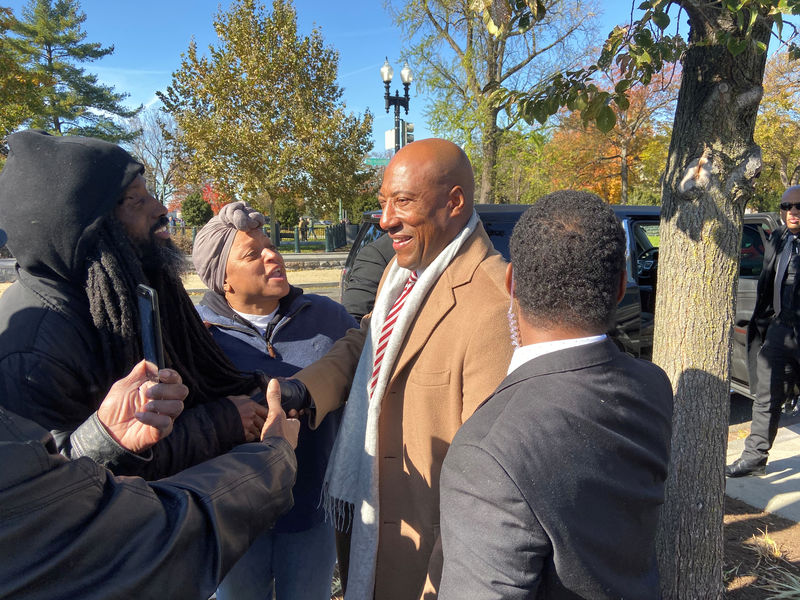This post was originally published on this site
https://i-invdn-com.akamaized.net/trkd-images/LYNXMPEFAC203_L.jpg
By Andrew Chung
WASHINGTON (Reuters) – U.S. Supreme Court justices on Wednesday expressed sympathy toward allowing comedian and producer Byron Allen to pursue his racial bias lawsuit accusing cable television operator Comcast Corp (O:) of discriminating against black-owned channels.
Over the course of an hour of oral arguments, however, the justices struggled over whether a lower court that cleared the way for the $20 billion lawsuit against Comcast to proceed had reviewed the case under the proper legal standard.
Their ruling, due by the end of June, could impact the ability of plaintiffs to enforce claims under the Civil Rights Act of 1866, a post-Civil War law that forbids racial discrimination in business contracts.
At issue in the litigation is the refusal by Comcast to carry channels operated by Entertainment Studios Networks, owned by Byron Allen, who is black.
The case centers on whether a lawsuit like Allen’s can proceed to trial without showing that racial discrimination was the predominant cause of the denial.
The San Francisco-based 9th U.S. Circuit Court of Appeals last year said lawsuits may go ahead if plaintiffs can show that discriminatory intent was one factor among others in the denial of a contract.
During Wednesday’s arguments, several justices raised doubts that the standard to sustain a lawsuit should be as stringent as Comcast suggests.
Chief Justice John Roberts wondered why, if “clear racial animus” occurred at one step of a failed contract negotiation, it would not be reasonable to allege in a lawsuit that the discrimination carried through to the end.
Justice Brett Kavanaugh noted that such discrimination lawsuits are rarely thrown out at an early stage of litigation.
Both liberal and conservative justices, however, raised questions indicating that the appeals court decision siding with Allen may have to be set aside and reconsidered in light of their eventual ruling.
Entertainment Studios Networks sued in Los Angeles federal court, accusing certain cable companies including Comcast and Charter Communications Inc (O:) of violating the civil rights law.
Comcast and Charter said their business decisions were based on capacity constraints, not race, and that Allen’s channels, including JusticeCentral.TV, Cars.TV, and Comedy.TV, did not show sufficient promise or customer demand to merit distribution.
Other distributors, including Verizon Communications Inc (N:), AT&T Inc (N:) and DirecTV, carry some of Allen’s programming, court papers said.
Allen pinned the rejections primarily on racial discrimination, accusing cable executives of giving insincere or invalid excuses and granting contracts to carry white-owned networks during the same period.
The Trump administration backed Comcast in the case.
Fusion Media or anyone involved with Fusion Media will not accept any liability for loss or damage as a result of reliance on the information including data, quotes, charts and buy/sell signals contained within this website. Please be fully informed regarding the risks and costs associated with trading the financial markets, it is one of the riskiest investment forms possible.

